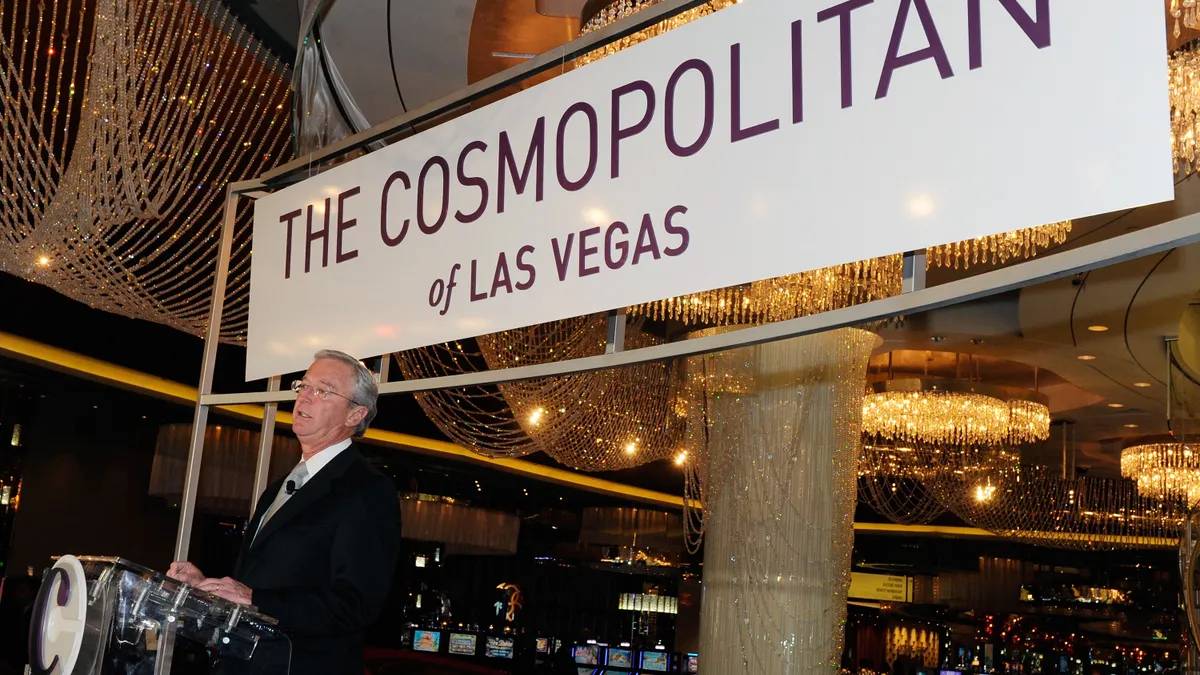When Carl Morrison learned earlier this year the hotel for which he was head of legal ops was going to be acquired by MGM Resorts, he did an inventory of his successes and where he needed to improve. What he learned helped him manage the uncertainty that comes with joining a much larger company.
“I knew we were going on the market,” Morrison said on an Inside Voices podcast. “I wanted to take inventory of who I was as a professional, not to tout all my great stories but so I could recreate and repeat those successes in the much larger department.”
He also started cleaning the data he expected would be transferred over to the bigger company’s legal department, an exercise that proved to be crucial in keeping the transition from becoming overwhelming.
“It’s like when you move out of your house,” said Morrison, who was the head of legal ops for a seven-person legal team at the Cosmopolitan, a luxury resort in Las Vegas, before the company was acquired. “You clean the house before you turn it over to the new owners. What data actually needs to stay pursuant to retention policies and schedules that are in place?”
Getting the data ready on his side was important even though he was largely in the dark about the systems and processes MGM’s legal team used.
“We couldn’t talk until we were fully closed,” he said. “You’re going in blind a little bit. I didn’t know how my systems were going to interact with their systems.”
More targeted focus
It's been more than 100 days since the deal closed and he’s still in learning mode about MGM’s legal processes. “It’s a slow burn because you just can’t shove all the data from our systems onto their systems,” he said.
MGM’s legal team is about 100 people, including a general counsel, several senior vice presidents, senior counsels, attorneys, paralegals and support staff. As the merged company’s new director of legal ops, he’s the only person focused solely on operations. “The legal ops as a department is a team of one,” he said. “Me. They did not have a true legal ops role before.”
Because of the legal department’s resources and structure, he’s able to focus more on just a few big tasks, something he wasn’t able to do in the smaller environment.
“I was truly trying to juggle a heavy workload without a lot of resources,” he said. “Now I’m able to shift some of that granular work to others and actually focus full time on very discrete legal operations roles, which is great.”
His first big project is implementing an enterprise legal management (ELM) system, which will combine much of the processes the team uses, including contracts, matter management and e-billing.
He’s also working with the broader organization on data privacy and information governance. “I’m a jack of all trades,” he said.
Navigating cultural changes has been the other big transition piece. While the deal was underway, he saw it as his job to help the lawyers and others on the smaller team manage the stress of change.
“People on the whole get scared,” he said. “They don’t know what the future looks like, so it’s a lot of change management.”
In some ways he had an advantage because he was involved in the mechanics of the deal, which gave him a window into what was going on that others didn’t have.
“I was one of very few people at the Cosmopolitan as a whole involved in the due diligence phase – the FTC [Federal Trade Commission antitrust review] side and the MGM investigation of us,” he said.
That enabled him to act as a guide to the rest of the legal team. But if he were to go through the process again, he’d spend more time making sure he didn’t neglect his own uncertainty about change.
“The legal department here at MGM has been amazing,” he said, but “it’s a grieving process. You’re losing your world as it was with one company. You’re going to a much bigger world. Recognizing grieving is a healthy perspective.”











